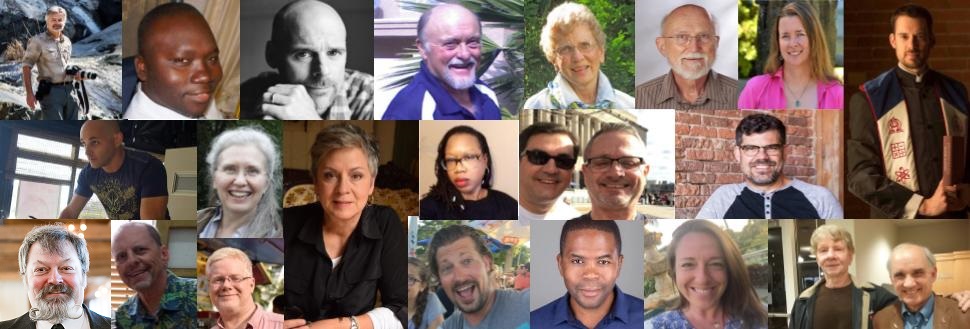
Calvin King

I’m a former Mennonite minister who served in two congregations in Kansas for a total of 30 years before resigning and entering the business world as a human resource manager. I distinctly remember reading through the Bible in 6 months when I was eight years old. I was surprised by God’s anger and destructiveness. Still I believed.
In seminary, I discovered the humanness of the Bible: it was based on earlier mythologies, variant manuscripts, and conflicting accounts. Yet I believed.
During my ministry I kept redefining my understanding of prayer, of scripture passages, and of the character of God. God became the life-creating energy that existed in everything.
I finally acknowledged that I no longer believed that a human/divine sacrifice was necessary for mankind to be “saved.” I changed my focus to the teachings of Jesus and the prophets who spoke of compassion, justice, and inclusion. I doubted the efficacy of prayer.
It was the logic of science that killed my belief in a god. I discovered that astrophysics has a more provable story of how the cosmos came to exist; and that biological evolution has a more testable account of how humans were created.
I participated in a professionally printed DVD, A Path Less Taken, (Amazon) which recounts the journey of four church leaders who left their ministry because of non-belief in God.
My wife believes in God and attends church. I am a member of the American Humanist Association. I am spending much of my time reading, writing, and speaking.
Eleven years ago, my wife and I moved from the Kansas City area to near Asheville, NC. We enjoy hiking, kayaking, camping, and touring by motorcycle. We have a son, a daughter and three grandchildren.
One of my objectives is to communicate that Humanists can be kind, caring, articulate, logical, honest and relational people.
The family’s adjustment to my non-belief in God has been painful but they have remained supportive. (“I will love you until the day you die, and then I will cry.”)
